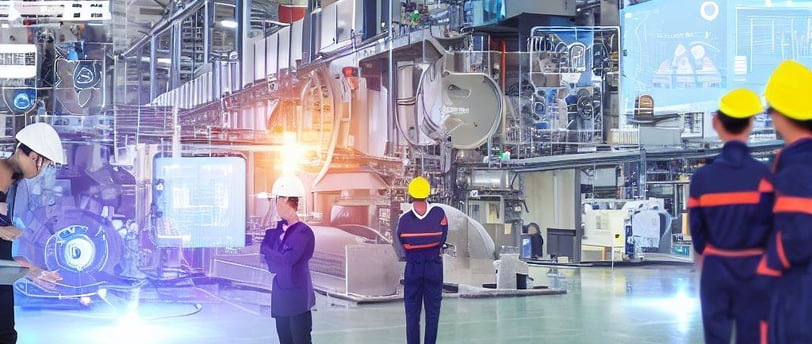Adapting to Change: How Political Factors Impact the Electrical Engineering and Automation Industry
Explore how the complex political climate impacts the electrical engineering and automation industry. Discover how regulations, trade policies, and government initiatives are driving the industry towards sustainable solutions, new technology adoption, and reshaping workforce development. Learn how TECSYS, a leader in the industry, navigates these changes for success.
8/4/20232 min read


The electrical engineering, automation, and control engineering sector, including areas of industrial automation and automation robotics, is not immune to the impacts of the prevailing political climate. This involves numerous factors, including regulations, trade policies, and government initiatives related to technology adoption, sustainability, and workforce development.
One pivotal shift involves amplified regulatory scrutiny towards environmental sustainability and energy efficiency. Governments worldwide are imposing stringent regulations to curb carbon emissions and endorse renewable energy sources. As a result, the industry is being pushed to develop and adopt more energy-efficient technologies and solutions, including smart grids, energy storage, and renewable energy systems. These actions play a significant role in construction automation, manufacturing automation, and automation systems, affecting both automation engineers and automation businesses alike.
Trade policies also wield a significant influence over the industry. Fluctuations in import-export regulations or tariffs can sway the cost of raw materials and components, directly impacting companies operating in the electrical automation sector. It necessitates a proactive approach to supply chain management, often compelling a shift in manufacturing strategies for automation companies in Australia, such as Tecsys.
Government initiatives promoting Industry 4.0 and digital transformation have spurred the industry to embrace new technologies, including the Internet of Things (IoT), artificial intelligence (AI), and machine learning. Automation and robotics, often used in automated handling systems and production lines, are helping companies improve operational efficiency, reduce costs, and offer innovative solutions.
The political impetus for infrastructure development in many countries has opened up new opportunities for the automation technology industry. For instance, projects like smart cities require sophisticated electrical and automation solutions, creating a significant demand for leading automation solution providers like Tecsys in Australia.
Politics also significantly impacts workforce development in the industry. Immigration policies, for instance, can affect the availability of skilled labour, a crucial resource for highly specialized areas like industrial automation engineering. A shortage of such workforce may affect robotic automation in manufacturing or automation system integrator companies, among other areas.
The automation industry, from SCADA engineering to control system integration and automation equipment, is continuously adapting to these political factors. Companies like Tecsys, a premier provider of automation solutions in Australia, that can anticipate and swiftly respond to these changes, are likely to thrive in this dynamic landscape.
